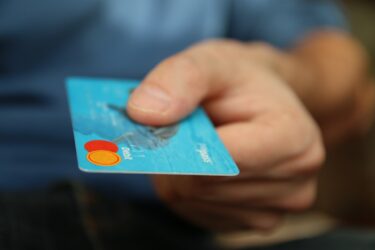Home » Blog
LockRite Locksmiths Blog
Stay up to date with the latest news, views and information from the UK's largest network of professional Locksmiths.
Featured Posts
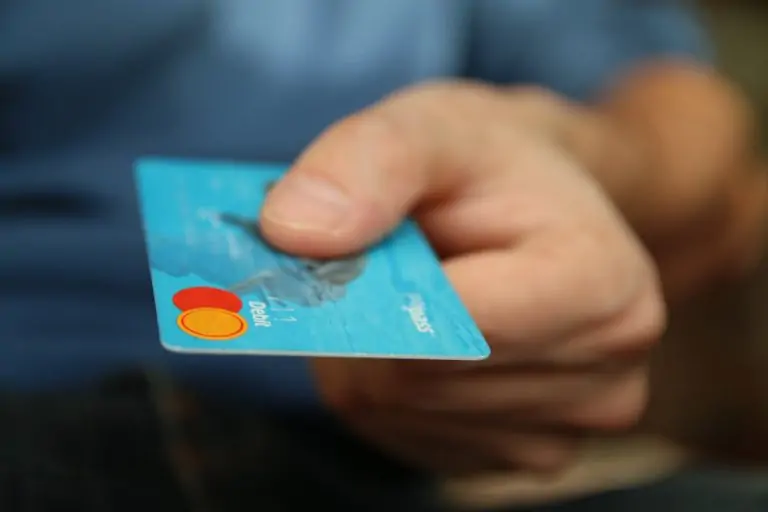
Why does a locksmith cost so much?
Locksmiths play a crucial role in ensuring the safety and security of our homes and businesses. However, when we need their services, we can find
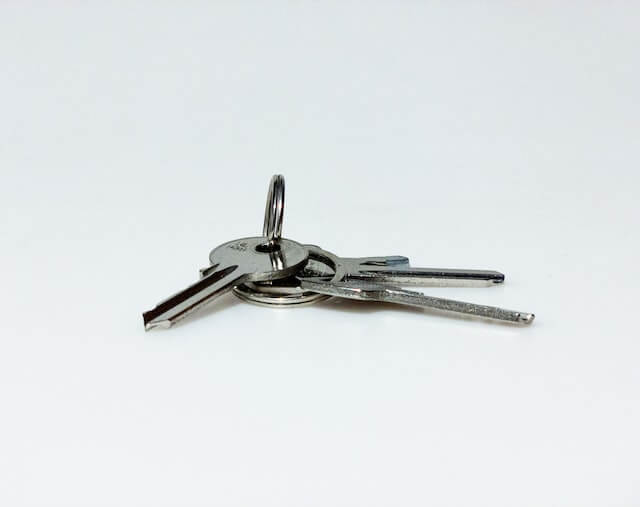
Where Are My Keys? Top Tips for Finding Lost Keys
Are you tired of losing your keys and experiencing the panic that comes with it? Don’t worry, in this article we share practical tips and
Recent Posts
Do You Really Know How Many Types of Locks There Are?
The first known lock and key device was found in the ruins of ancient Assyria’s capital. It was later on developed into the Egyptian wooden pin lock. But since then, countless types of locks have emerged, each keeping their initial purpose: to provide safety for people’s belongings and families.
In the following lines, we’ll walk you through some of the most popular locking mechanisms and each of their uses, advantages, and disadvantages. Read on if you want to find out which one you should use.
#1 Padlocks
These are probably the most common types of locks out there. They are used in a wide array of situations and offer basic security for goods and properties. The first laminated padlock was patented in 1924.
There are two different types:
- Combination padlocks require a specific number sequence in order to unlatch the locking mechanism,
- Key-based padlocks require a key to be opened.

#2 Types of Locks: Deadbolts
From the different types of locks, deadbolts are the ones most commonly used for front doors. They are generally accepted as being more secure than the standard spring lock because they cannot be opened unless a key is used to rotate the lock cylinder to the open position.
An interesting fact you should know is that they were invented by a former police officer in 1912. They usually comprise two subtypes:
- Single cylinder,
- Double cylinder.
Single cylinder locks use a key on the outside and a thumb turn on the inside.
On the other hand, double cylinders require a key both on the inside and the outside.
#3 Euro Profile Cylinders

As you may guess from their name, these locks are most common in Europe, U.K. included. In fact, European locksmiths agreed on a standardized lock over a century ago.
These locks are divided into three different categories:
- Single cylinder – only operable on one side with the use of a key,
- Double cylinders – a key can be used on both sides,
- Thumb turn – a key-operated locking cylinder on one side and a thumb turn on the other.
#4 Cam Locks
You may have seen cam locks already, but you never gave them enough importance. They are largely used for securing filing cabinets, for example.
The interesting fact is they can rotate to 90 or 180 degrees. They can also be set-up to rotate clockwise or counter-clockwise.
Additionally, based on their length, they can be combined with a variety of tailpieces so that multiple locking mechanisms interact one with the other.
#5 Digital Locks
Digital security locks have been used in hotels and cars for a while now. However, only recently have they started to be more widely used for households.
They can be opened or closed either by using a pin code or a swipe card. Another advantage they present is that they are easy to ‘rekey’, since the lock mechanism doesn’t need to be changed.
#6 Code Locks
This type of locking where a sequence of numbers or symbols is used to open the lock is still a favourite nowadays.
One of the main advantages is that it allows over 10.000 combinations, so it’s highly unlikely for someone with bad intentions to simply guess your code.
However, if you have more than a few of these locks, keeping track of all the associated codes can turn out to be a difficult task.
#7 Mortice Locks
You can find these locks in homes of all ages in Europe. Mortice locks are the ones requiring a hollow (called the mortise) to be cut into the door where the lock will be fitted.
These types are not very hard to install, and the process can typically be carried out by homeowners who have basic knowledge on operating with woodworking tools. Also, they are durable, dependable, and are available in a variety of sizes.
The main disadvantage is that a lot can go wrong with a mortice lock, especially an old one, and the problem is not easy to diagnose. You will most likely have to resort to the help of a specialist.
#8 Smart Locks

These are the newest types of locks with the most features. This new technology can connect to the Internet and can be remotely activated with ease.
Smart locks no longer require a key or a thumb turn, as everything can be activated through the push of a button on your smartphone. Additionally, they can integrate with your smart home ecosystem, thus offering increased comfort and convenience when compared to a regular type of lock.
Key Takeaways
From the multiple types of locks out there, some of them aren’t suitable for your home. Based on your lifestyle and needs, a traditional lock could suffice.
However, for the most benefits and a great security experience, smart locks may be the very best solution.
Would you like to learn more? You can get in touch with us anytime.
Locks and Keys – A Brief History. Here’s How They Have Evolved over the Years
From wood to metal, locks and keys have certainly seen their fair share of innovation over the centuries.
The wooden pin lock was discovered in ancient Mesopotamia. Invented some 4,000 years ago, the design was remarkably similar to modern-day locks.
Centuries later, the wood has turned into metal, intricate mechanisms are being replaced by electronics, and isolation tends to go towards interconnection.
Without further ado, let’s take a walk down history lane and see how locks and keys have changed.
The Origins
As mentioned above, the oldest lock mechanism ever discovered looked a lot like what we use today. Granted, it may have lacked the durability and security we get to enjoy in the present, but for its time, it was remarkable.
People have always craved the feeling of security and the first lock is simply proof of that.

The oldest lock had pins of varying length as part of the locking mechanism. They would prevent the door from opening unless the proper key was inserted to push the pins up so that the wooden bolt which kept the door secure could be moved out of the way.
Egyptians Made Locks and Keys Popular
Ancient Egyptians took the Mesopotamian model, improved it and made it popular. In fact, they are credited with the use of lock and key in architecture.
The Egyptian model was a bit more durable because they replaced the wooden pins with brass. It became so popular that it spread to Greece and the Roman Empire.
They took over and decided to further develop it. Thus, they invented smaller locks and keys which could be fitted to secure chests and drawers.
Another important aspect is that in Europe, locks became a statement. Affluent Romans would wear their keys like rings, so that others would know that they were rich enough to own things which needed protection.
The Birth of Modern Locksmithing
The original design remained largely the same throughout the centuries. However, the Middle Ages saw some innovation in the form of the all metal warded lock. The design only lasted until the technological revolution took over and England became the cradle of security.

Robert Barron patented a double-acting lever tumbler lock, in 1778. Just six years later, Joseph Bramah patented a high-security lock which is still manufactured and sold in London today.
Both of those and subsequent models were successfully picked by an American – Alfred C. Hobbs – and the Great Exhibition. And the authority in locks and keys moved to America.
Yale and the Future
Linus Yale Sr. patented his pin and tumbler lock, in 1843. It became so popular and trusted, people simply called it the Yale lock.
But slowly, another revolution was taking over everything: the digital era. The first electronic lock was patented in 1975. It has been used largely in hotels and cars.

However, the present looks to take the electronic lock even further. People can now opt for all kinds of authentication methods, from passwords to fingerprints. Even Yale is pushing towards a future without physical keys.
Yale smart locks can now connect to the internet and other smart devices you have in your home. They can be safely armed or disarmed remotely, using just your smartphone. They get you a different kind of security – more immersive since you can monitor your home even while on holiday.
If you’d like to learn even more about how to keep your home safe in the present, you can always get in touch with us.
If you’ve enjoyed reading about the history of locks and keys, why not share this post with your friends on social media?
Interesting Facts about the Oldest Door Lock
Locking our door at night or when we leave our home is something we do automatically. It’s so crucial to us that we start to get uncomfortable at the thought of not remembering whether we’ve done it or not.
Today, door locks are all about keeping us safe.
But how about we talk a little bit about the oldest door lock?
We’ve discovered some interesting facts and we’re confident that you’re going to enjoy them.
Facts about the Oldest Door Lock
Locks have been invented because people wanted to keep intruders out and their belongings safe.
The oldest known door lock was made by the ancient Egyptians. Archaeologists found it in the Khorsabad palace ruins near Nineveh. Nineveh was an ancient Assyrian city of Upper Mesopotamia. The Egyptians were inspired by the Assyrians to create their door lock.

It’s been estimated that this well-preserved lock had somewhere around 4,000 years old. This means that it was created at least around 2000 B.C.
The Egyptian locks were remarkably similar to pin-tumbler locks. However, they were much larger than the ones we’re used to today. The biggest ones that were discovered had even two feet in length.
The main difference between the oldest door lock and the ones that were later invented was the fact that it was made entirely out of wood. This included the key as well.
These locks were made with a wooden bolt which was attached to the door. It had a slot with several holes on the upper surface.
This was attached to the door and it had wooden pins which were arranged in different patterns. Because of that, each lock was unique and it needed its own key in order to be opened.
To open the door, the wooden key would have to be inserted in the through the bolt. This would then raise the pins, and the lock would slide out.
The locks developed by the Egyptians were much more secure than the ones created later on by the Romans. One reason was due to their size.
The Romans locks used a spring rather than a bolt and they were easier to pick than the Egyptians ones.
The pin-tumbler lock is still to this day the most common type used for door locks.
Researchers believe that the Egyptians created these big door locks because they wanted to protect:
- Their belongings;
- And places of religious significance.
These Egyptians locks were so effective that actual security guards become unnecessary. Also, all the doors could be locked and unlocked only from the outside.

Egyptians Knew Their Way Around Door Locks
Even if it has not been proven, researchers believe that door locks existed prior to 2000 B.C.
However, they were probably not as resistant as those created by the Egyptians.
We hope you’ve enjoyed this article and the facts we presented about the oldest door lock.
In the end, we want you to know that we always got your back and the security of your door. If you ever need the help of a locksmith that’s near you, you can count on us.
We can repair and replace doors, frames and locks in case they have been damaged. Whenever you need our help, give us a call at 0800 0612 677.
Post Categories
Locksmith Services

If you’re locked out, we can get you back in! We’re experts at picking locks and gaining entry.

We change, repair and fit a wide variety of locks, including : Mortice Locks & Euro Cylinders.

Our expert locksmiths can supply and fit the latest digital smart locks. Including the Yale Linus.

Our trained locksmiths can supply and fit the latest High definition CCTV to your home or business premises.

Our locksmiths can provide boarding services to secure your home or commercial premises.

We offer a full security survey service. Do you really know how secure your home or property is?
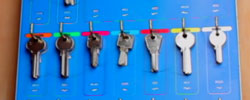
We can cut extra keys for your home or office. Our locksmiths carry a range of key blanks.
Smart Security Installed
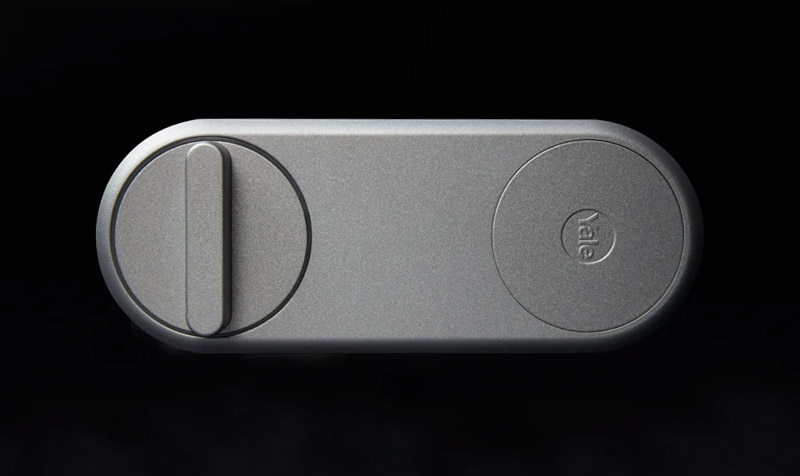
Yale Linus
Smart Lock
The Yale Linus door lock. A keyless lock, designed to secure and simplify your life. Lock and unlock your door, no matter where you are.
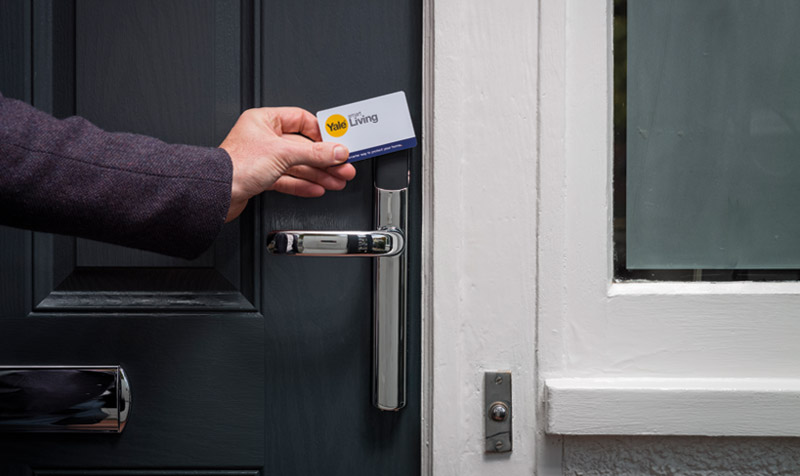
Yale Conexis
Smart Lock
The smart door lock that puts you fully in control. The Yale Conexis gives you the freedom to secure your home without the need for a key.
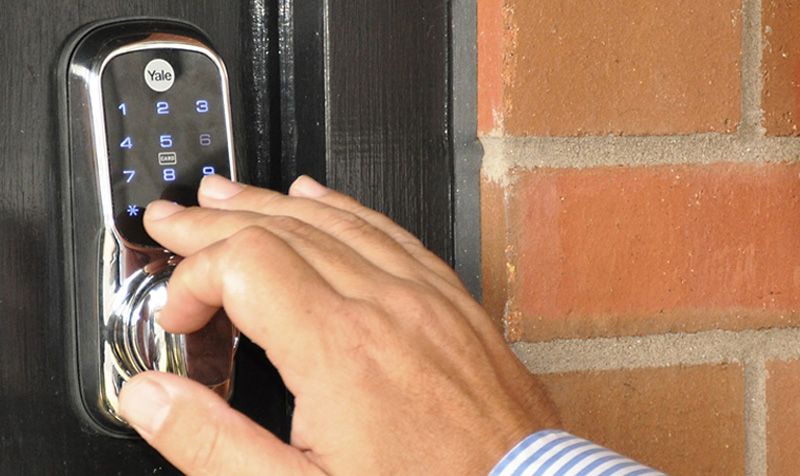
Yale Keyless
Connected Smart Lock
The Keyless Lock allows you complete control over how you lock your home. Unlock with a PIN, key card, key tag, remote fob or your phone.
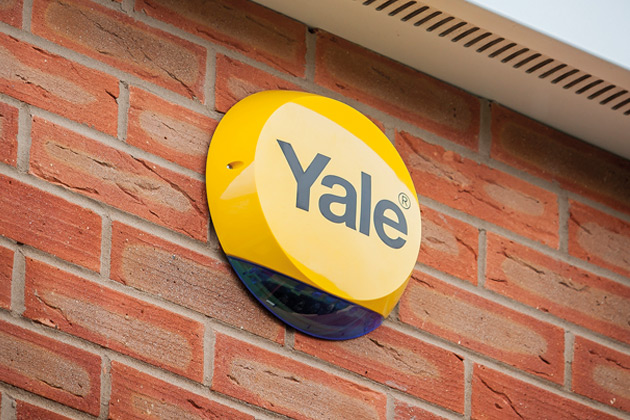
Yale Sync Alarm
The Yale Linus door lock. A keyless lock, designed to secure and simplify your life. Lock and unlock your door, no matter where you are.
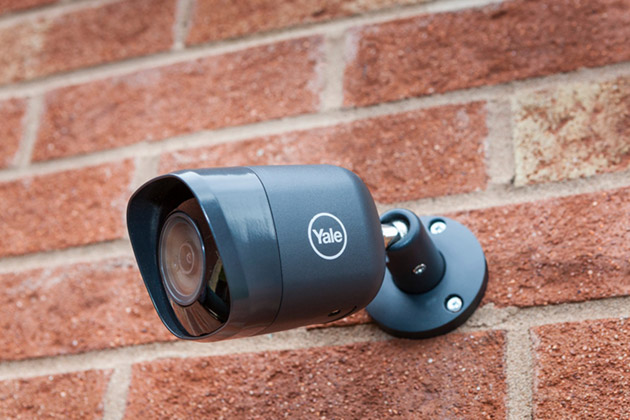
Yale CCTV
The smart door lock that puts you fully in control. The Yale Conexis gives you the freedom to secure your home without the need for a key.



